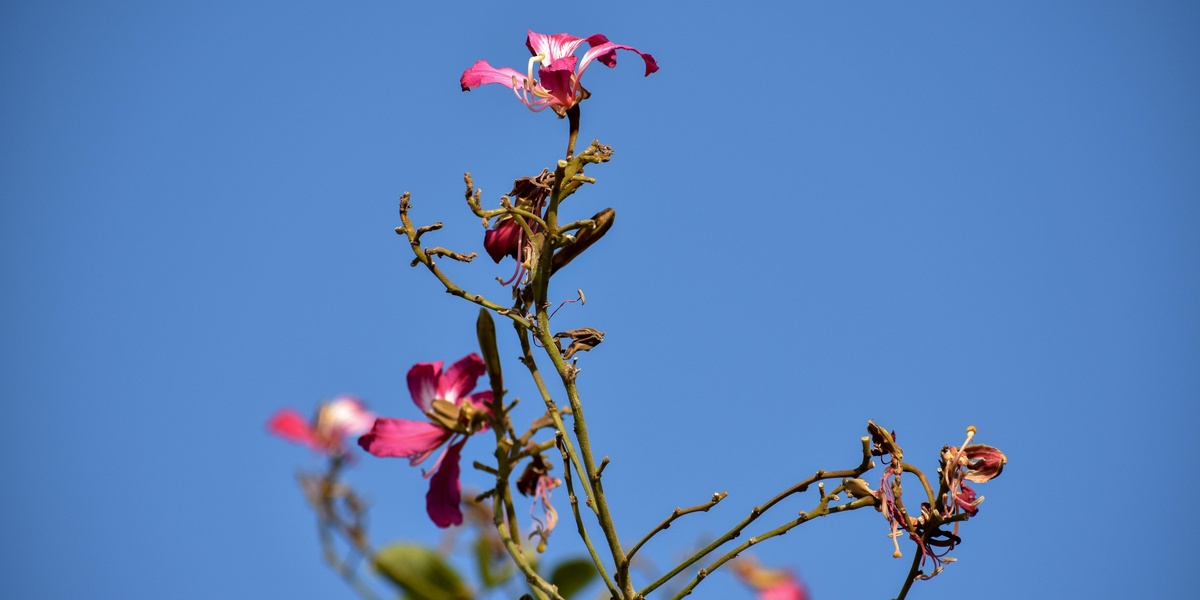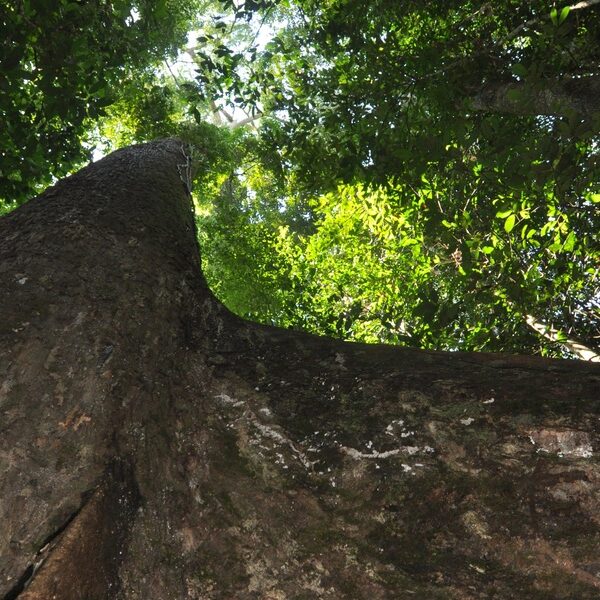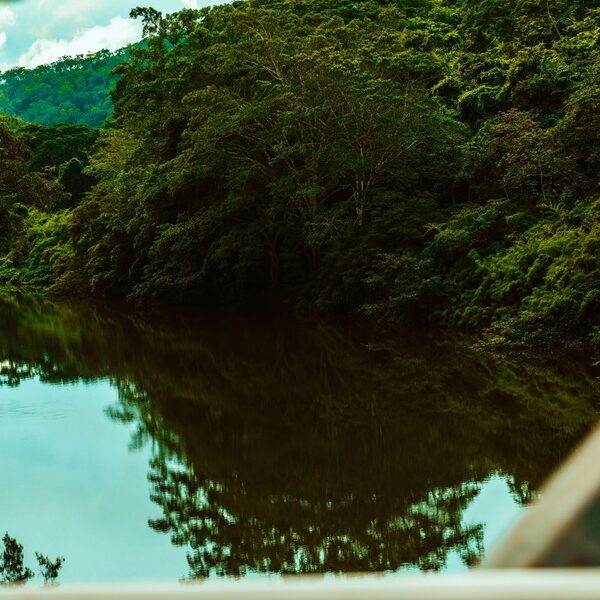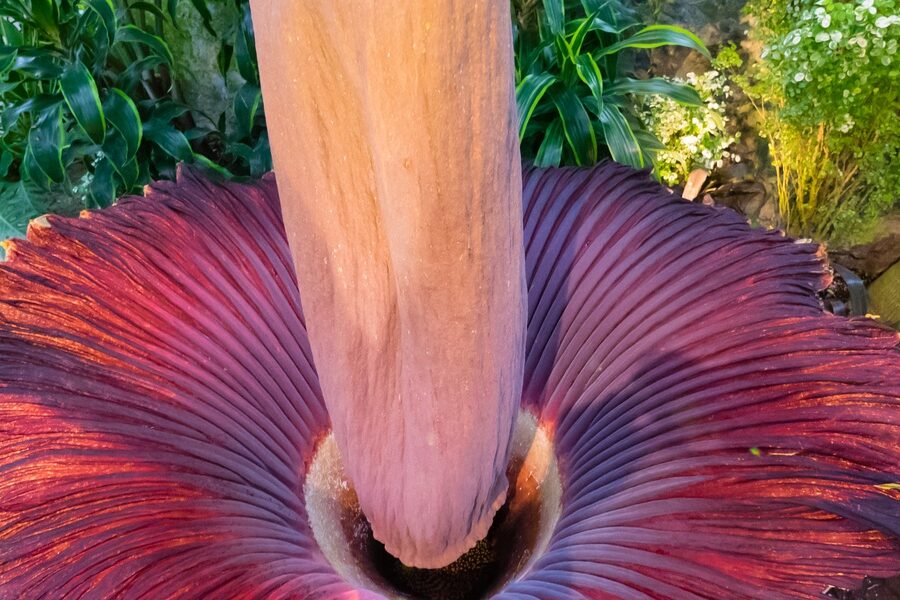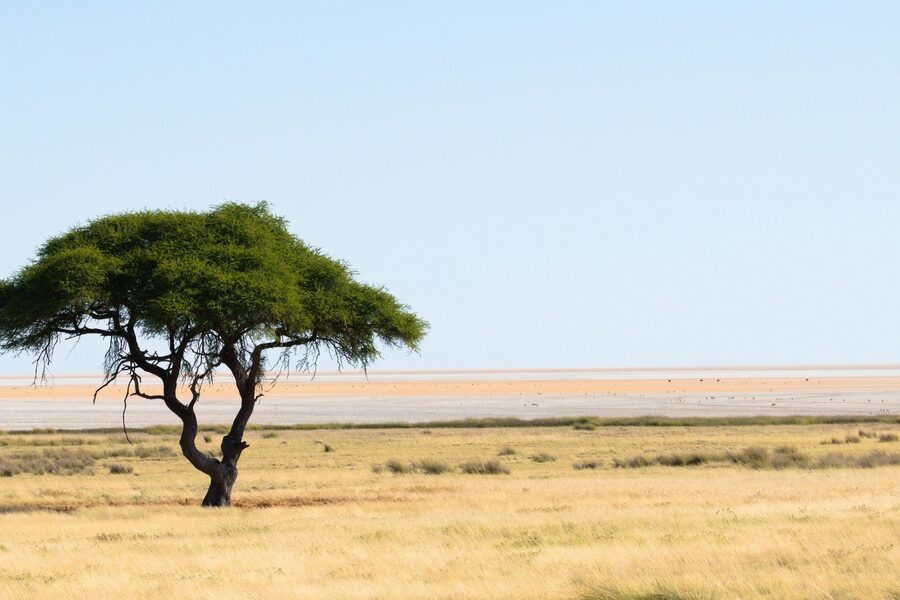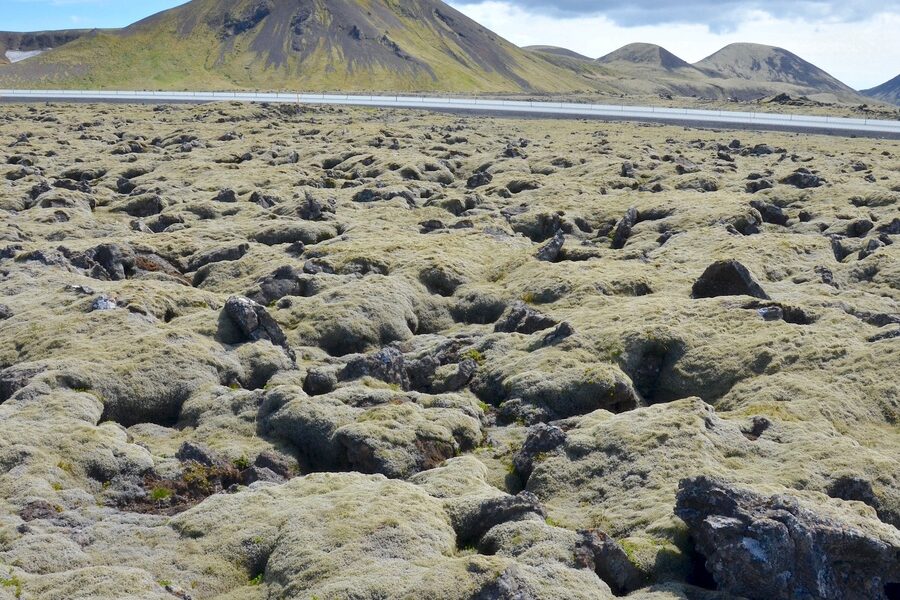Paraguay’s landscapes — from riverine forests to dry Chaco scrub — host a surprising variety of native and cultivated blooms that reflect the country’s mix of subtropical and temperate influences. Whether walking a city garden or a rural trail, you’ll notice flowers that tell stories about local ecology and cultural use.
There are 31 Flowers of Paraguay, ranging from Achira (canna) to Yerba mate. For each, you’ll find below the fields: Scientific name,Family,Habitat/Distribution, so you can quickly compare taxonomy and where each species grows — you’ll find below.
When is the best time to see these flowers in Paraguay?
Most flowering peaks occur in spring and summer (September–March in Paraguay), but exact timing depends on species and region; riparian and tropical species may bloom earlier or sporadically after rains, while temperate-adapted plants often flower later in the season.
Are any of these plants traditionally used or protected?
Yes — several species are used locally for medicine, food, or ornament, and some endemics or habitat-restricted plants have conservation status; check local regulations and protected-area guidelines before collecting or disturbing wild populations.
Flowers of Paraguay
| Common name | Scientific name | Family | Habitat/Distribution |
|---|---|---|---|
| Silk floss tree | Ceiba speciosa | Malvaceae | Eastern Forests, urban parks, river margins |
| Jacarandá | Jacaranda mimosifolia | Bignoniaceae | Urban avenues, cultivated gardens, Eastern region |
| Golden ipê (lapacho amarillo) | Handroanthus serratifolius | Bignoniaceae | Dry forests, Chaco edges, municipal plantings |
| Pink ipê (lapacho rosa) | Handroanthus impetiginosus | Bignoniaceae | Eastern Forest, gallery forests, urban plantings |
| Passionflower (mburucuyá) | Passiflora caerulea | Passifloraceae | Forest edges, gardens, hedgerows |
| Passion fruit | Passiflora edulis | Passifloraceae | Cultivated orchards, gardens, forest edges |
| Pitanga (Surinam cherry) | Eugenia uniflora | Myrtaceae | Gardens, forest edges, riparian zones |
| Ceibo | Erythrina crista-galli | Fabaceae | Riverbanks, wetlands, riparian forest, eastern lowlands |
| Water hyacinth | Eichhornia crassipes | Pontederiaceae | Slow rivers, ponds, wetlands (Paraná basin) |
| Giant water lily | Victoria cruziana | Nymphaeaceae | Slow-moving rivers, oxbow lakes, wetlands of eastern Paraguay |
| Bougainvillea | Bougainvillea glabra | Nyctaginaceae | Urban gardens, fences, arid yards |
| Hibiscus | Hibiscus rosa-sinensis | Malvaceae | Home gardens, parks, urban plantings |
| Lantana | Lantana camara | Verbenaceae | Roadsides, disturbed ground, gardens |
| Achira (canna) | Canna indica | Cannaceae | Riparian margins, cultivated gardens, disturbed ground |
| Annatto (achiote) | Bixa orellana | Bixaceae | Cultivated gardens, secondary forests, rural homesteads |
| Algarrobo blanco | Prosopis alba | Fabaceae | Dry Chaco, gallery forests, savanna |
| Yatay palm | Butia yatay | Arecaceae | Dry savannas, Chaco gallery forests, palms groves |
| Yerba mate | Ilex paraguariensis | Aquifoliaceae | Eastern Forest, cultivated plantations, understory |
| Frangipani (temple tree) | Plumeria rubra | Apocynaceae | Gardens, courtyards, urban plantings |
| Marcela | Achyrocline satureioides | Asteraceae | Grasslands, disturbed areas, roadsides |
| Bugweed (wild tobacco) | Solanum mauritianum | Solanaceae | Disturbed forests, edges, urban wastelands |
| Princess flower | Tibouchina urvilleana | Melastomataceae | Gardens, forest edges (cultivated) |
| Guavira | Campomanesia xanthocarpa | Myrtaceae | Riparian forests, Atlantic forest fragments, plantations |
| Soursop | Annona muricata | Annonaceae | Cultivated orchards, home gardens, humid lowlands |
| Peruvian pepper tree | Schinus molle | Anacardiaceae | Savannas, dry forests, urban plantings |
| Morning glory | Ipomoea purpurea | Convolvulaceae | Roadsides, hedges, disturbed ground, gardens |
| Jatobá | Hymenaea courbaril | Fabaceae | Eastern Forest, gallery forests, remnant woodland |
| Gardenia | Gardenia jasminoides | Rubiaceae | Gardens, shaded courtyards, cultivated |
| Cattleya orchid (wild forms) | Cattleya spp. | Orchidaceae | Eastern Forest remnants, humid slopes (localized) |
| Ceiba (native algarrobo-like) | Schizolobium parahyba | Fabaceae | Riparian forest, secondary growth, eastern lowlands |
| Coral tree (Erythrina speciosa-like) | Erythrina spp. | Fabaceae | Riverbanks, savanna edges, urban plantings |
Images and Descriptions
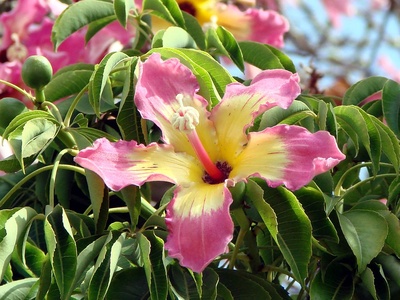
Silk floss tree
Showy pink-to-white trumpet flowers on a thorny trunk; blooms in dry season (late winter–spring). Easy to spot in city streets and parklands, especially in Asunción and eastern Paraguay.
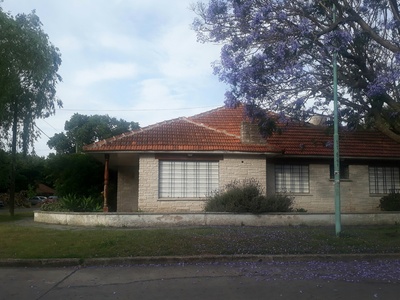
Jacarandá
Iconic purple-blue panicles cover trees in spring. Common in parks and streets of Asunción and Encarnación; large fern-like leaves and tubular blossoms make it unmistakable during peak bloom.
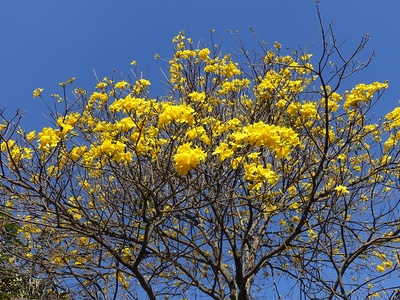
Golden ipê (lapacho amarillo)
Medium–large tree with bright yellow trumpet flowers in the dry season. Flowers often stand out on leafless branches; seen along roadsides and in drier forest patches.
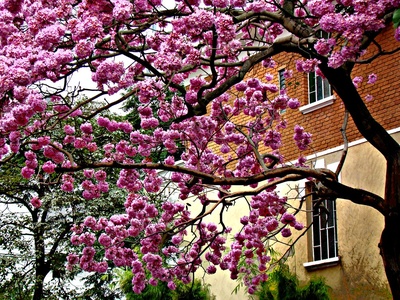
Pink ipê (lapacho rosa)
Produces clusters of pink to purple trumpet flowers, usually flowering in transitional seasons. Found in remnant forest patches and city plantings; prized for its dramatic seasonal display.
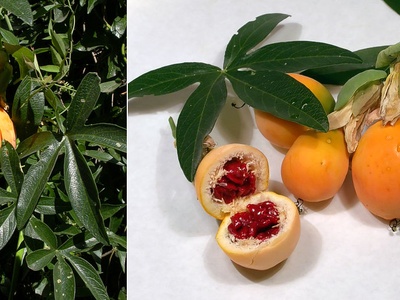
Passionflower (mburucuyá)
Vine with intricate blue-and-white corona; fragrant flowers bloom spring–summer. Clings to fences and trees near waterways; fruit sometimes eaten by locals.
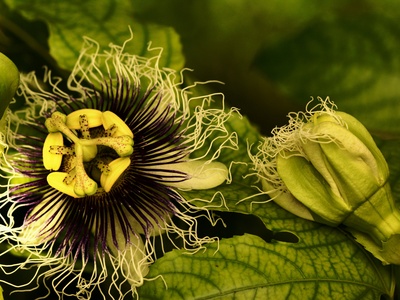
Passion fruit
Purple-violet flowers followed by edible fruit; blooms mostly in warm months. Common in home gardens and small farms throughout eastern Paraguay.
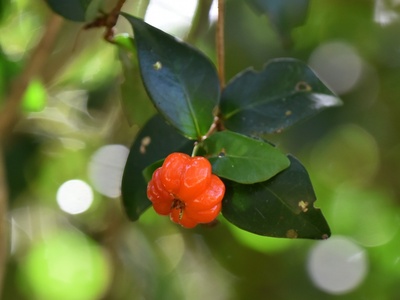
Pitanga (Surinam cherry)
White, fragrant small flowers lead to bright red ribbed fruit. Flowering in spring–summer; widespread in towns, hedges and wild edges across Paraguay.
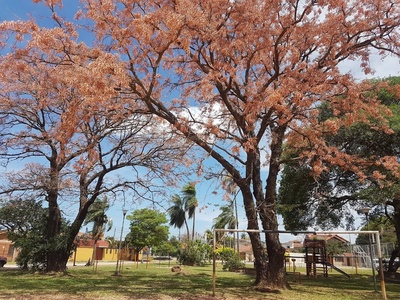
Ceibo
Striking red pea-shaped flowers in early summer, often on bare branches. Iconic riverside tree visible along Paraguay and Paraná waterways and in wetlands.
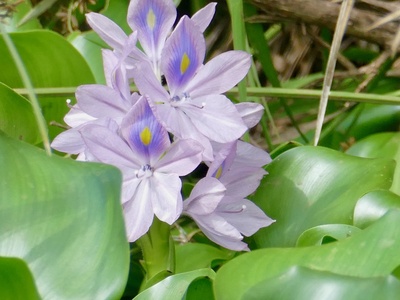
Water hyacinth
Floating invasive with lavender-to-purple spike flowers. Blooms in warm months and carpets water bodies; common on slow-moving waterways near Asunción and southern wetlands.
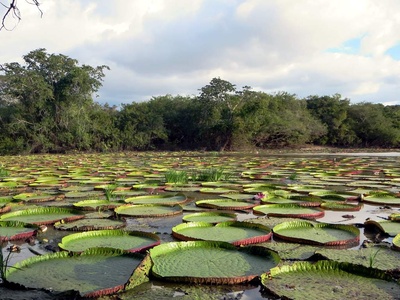
Giant water lily
Massive circular leaves and large nocturnal white-pink flowers on calm lagoons. Best seen in protected wetland reserves and botanical collections near river systems.
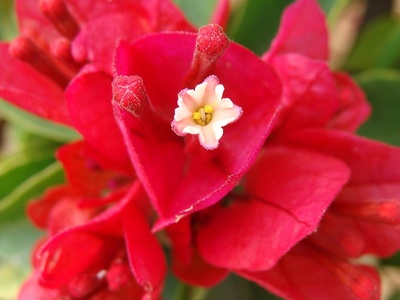
Bougainvillea
Vibrant papery bracts in pink, purple or white year-round in warm spots; blooms repeatedly. Widely planted on walls and pergolas in cities and rural homes.
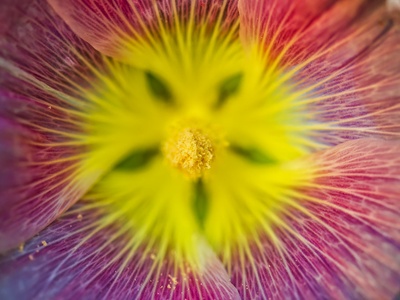
Hibiscus
Large tropical hibiscus with showy single or double blossoms in many colors; blooms year-round in warm microclimates. Very common as an ornamental hedge or specimen shrub.
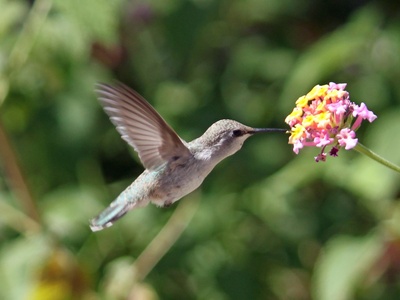
Lantana
Clusters of small multicolored flowers attract butterflies; blooms spring–autumn. Naturalized and common on edges of fields, wastelands and garden borders throughout Paraguay.
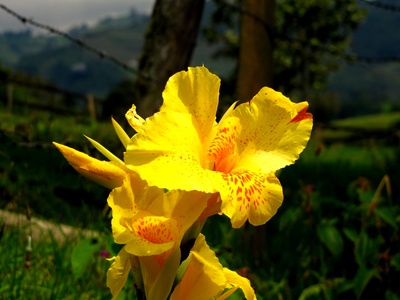
Achira (canna)
Tall leafy plant with red, orange or yellow flowers in summer. Easy to spot in countryside gardens, along streams and public plantings in eastern regions.
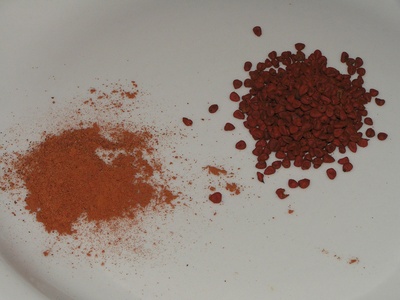
Annatto (achiote)
Shrub with pink clusters of fragrant flowers; seed pods used for red dye. Blooms warm months; common around farms and village gardens.
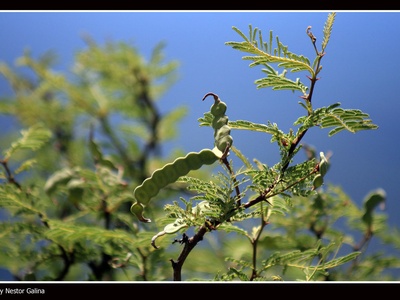
Algarrobo blanco
Hardy tree with pale-yellow fluffy pea-flowers in spring; seeds in pods. Common in Gran Chaco and transitional dry areas, used for shade and timber.
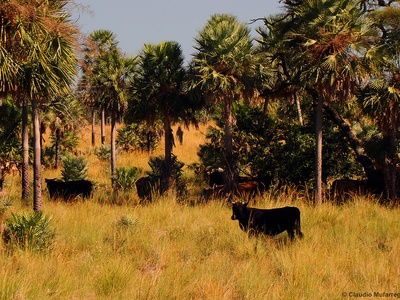
Yatay palm
Feathered palm with yellow-orange inflorescences and edible fruit; flowers in warm months. Look for it in open savannas and protected palm groves in western and central Paraguay.
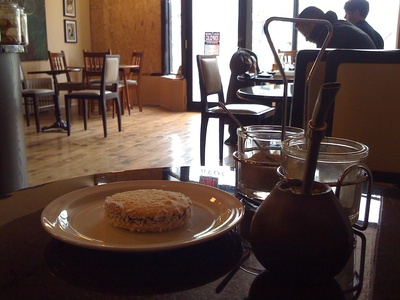
Yerba mate
Small inconspicuous white flowers in spring that precede the leaf harvest; key plant of Paraguayan culture. Found in wild stands and plantations in humid eastern zones.
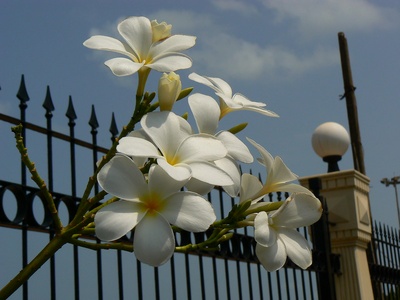
Frangipani (temple tree)
Fragrant white, yellow, or pink tubular flowers bloom in warm months. Widely planted near houses and temples in eastern Paraguay for scent and ornamental value.

Marcela
Low herb with clusters of small yellow flowers; blooms in late summer–autumn. Common in open fields and used locally as a medicinal tea.
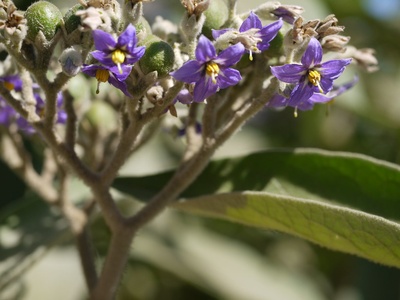
Bugweed (wild tobacco)
Shrubby plant with clusters of purple-tinged flowers and yellow centers; flowers most of the year. Naturalized and common in disturbed areas near towns.
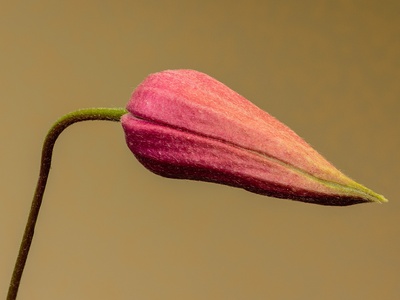
Princess flower
Showy magenta-purple petals with dark stamens; blooms late winter–spring. Popular ornamental in gardens and parks in the eastern humid zone.
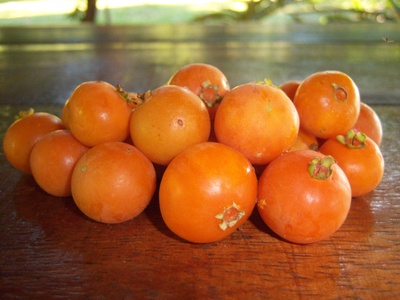
Guavira
Small white fragrant flowers produce yellow edible fruit; blooms in spring–summer. Found in subtropical forest remnants and home gardens.
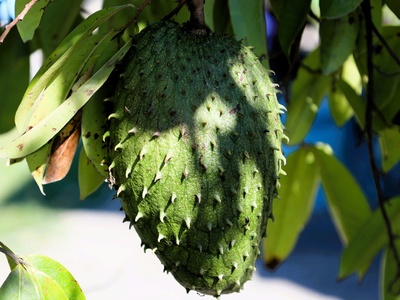
Soursop
Creamy white tubular flowers give way to large spiny fruit; blooms mostly in warm months. Grown in gardens across eastern Paraguay for fruit.
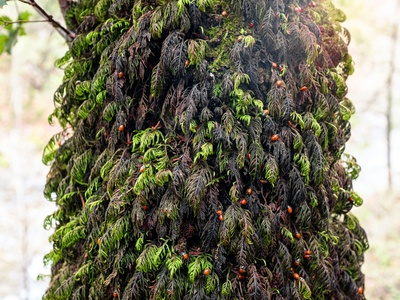
Peruvian pepper tree
Drooping clusters of tiny pinkish flowers then peppery berries; blooms late spring–summer. Widespread as a shade and roadside tree in dry and urban areas.
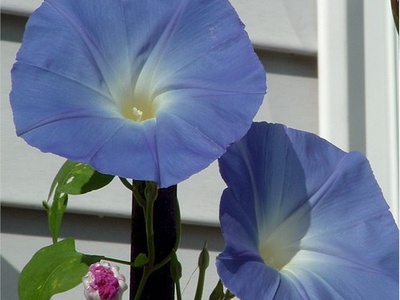
Morning glory
Climbing vine with funnel-shaped purple, blue or white flowers that open in morning. Common in open sunny spots across Paraguay during warm seasons.
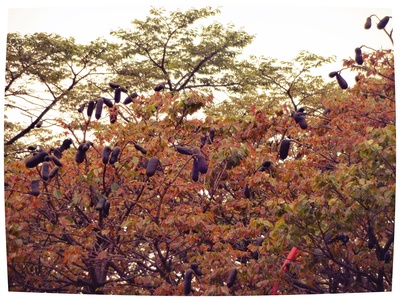
Jatobá
Large tree with small, fragrant yellowish flowers; produces heavy hard pods. Seen in mature forest fragments and some rural landscapes.
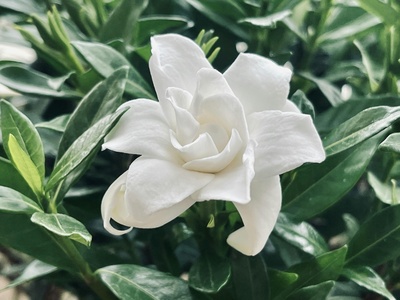
Gardenia
Fragrant white double flowers in warm months; often planted near homes. Look for its scent in shaded gardens throughout eastern Paraguay.
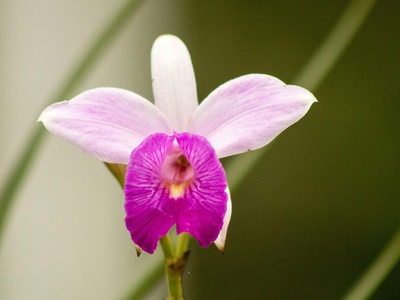
Cattleya orchid (wild forms)
Showy orchid flowers in shades of purple, pink or white; seasonal blooms vary by species. Best seen in protected Atlantic forest fragments and reserves.

Ceiba (native algarrobo-like)
Tall, fast-growing tree with bright yellow pea-like flowers in the wet season; common in regenerating forest edges and river corridors.
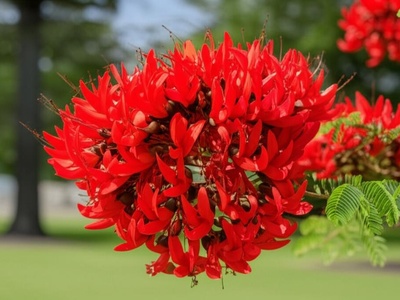
Coral tree (Erythrina speciosa-like)
Species of Erythrina produce showy red pea-flowers attracting hummingbirds; bloom mainly late winter–spring. Several species and hybrids are visible along waterways and parks.
